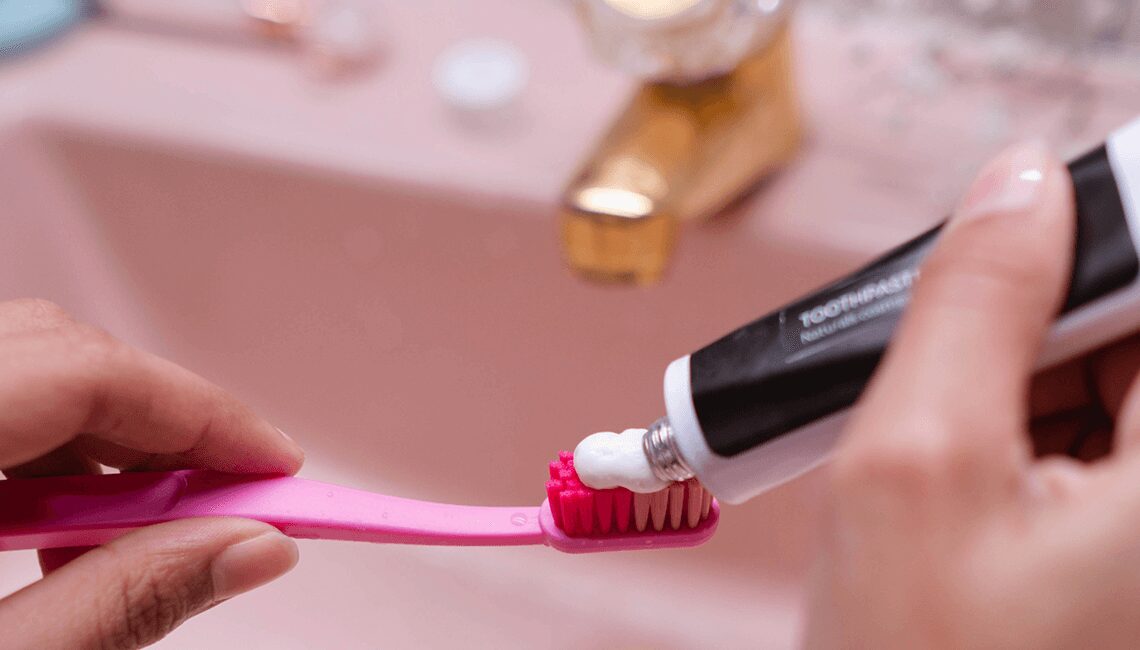If there is one thing everyone hates, it’s bad breath. And while we all know that basic dental hygiene like brushing and flossing keeps it a bay, some not-so-obvious reasons might be leading to a foul mouth. Yes, some underlying health conditions or foods (beyond onions and garlic) could unknowingly lead to that unpleasant odor. Here dentist and founder of Oral Genome – a D2C dental wellness testing kit that measures your oral health by testing your saliva’s response to fighting cavities, gum disease and bad breath – Dr. Tina Saw, reveals what your lousy breath is trying to tell you.
You Have A Gum Infection
That bad breath has more to do with your gums than your actual teeth. So, if you’re only brushing the pearly whites, you might be missing out on some critical dental hygiene steps to treat the gums.
“Our gums hold our teeth, and there are pockets between each tooth and gum tissue that can harbor bad bacteria leading to halitosis or bad breath,” said Shaw. “You need to clean out these gum pockets, and often they’re not easily accessible by a regular toothbrush if they’re very deep.”
Periodontal or gum infections can occur when there are many bacteria underneath the gums, causing horrible breath. In addition, if gum pockets are not cleaned out thoroughly and bacteria and plaque remain, calculus or tartar can form, which is a hard, mineralized substance that acts as an irritant and can cause bone loss if not removed. Plus, if gum infections are left untreated, bacteria can travel into the bloodstream and cause other health concerns.
Check For Underlying Health Issues
There is a significant connection between oral health and systemic health. “Many studies have found a connection between periodontal disease and osteoporosis, respiratory disease, heart disease, stroke, and diabetes,” said Shaw.
You should consult your dentist if you have bad breath immediately. Have him check for signs of periodontal infections and dry mouth. Often a dentist will measure your gum pockets, recession, and furcation levels to diagnose gum disease, along with reviewing bone levels in your dental x-rays. He will also look for signs of dry mouth.
“But, if your dentist has cleared you of these issues, then talk to your physician to see if there are any other underlying health conditions such as acid reflux or liver problems,” said Shaw. “Some cancers are also known to cause bad breath.”


Review Your Medication
Poor dental hygiene and periodontal gum infections are not the only cause of bad breath. Xerostomia (dry mouth), when salivary glands do not produce enough saliva, is also a key factor. So if you’re suffering from dry mouth, you’ll want to take a peek inside your medicine cabinet.
“Some medications can cause dry mouth,” said Shaw. “Check with your physician or pharmacist if you are experiencing dry mouth and see if there are any alternatives.”
Watch How Much You Drink
While we all know that onions and garlic will create bad breath, there’s one thing you might be consuming that could unexpectedly be causing oral odor: booze. “Alcohol has a drying effect and reduces saliva flow, allowing bad-smelling bacteria to linger longer,” said Shaw.
So, if you’re going to be drinking, make sure to have a lot of H2O on hand as well. “Water helps promote the production of saliva and constantly cleanses the oral cavity, flushing out bad smells, bacteria, and food bits,” said Shaw.












